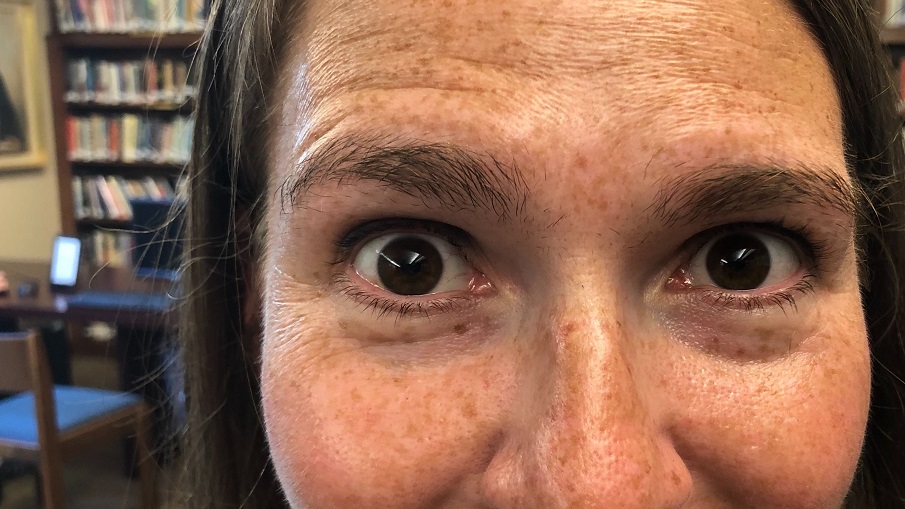When my children were little, we read a lot of Brown Bear, Brown Bear, What Do You See? by Eric Carle. The bear goes around and shares what it sees in the world. A red bird, a blue horse, the bear lists all the animals it sees on his daily adventure. Between this book and games of “I Spy” we spent a lot of time practicing using our eyes to take in the world around us.

Each morning our daily prayers give us a list of bodily functions and sensory moments to give thanks for. The morning blessings can read like a checklist of your day: wake up, straighten and stretch our bodies out, put on clothes, eat breakfast, look at the world around us. Each of these is a unique blessing. I’m often struck by the words of the blessing about seeing, “Pokeach Ivrim.” Blessed is God, who opens the eyes of the blind. This is a curious prayer for a couple of reasons. Are we supposed to read it literally, believing that God actually causes blindness and then miraculous recovery? And if you haven’t experienced this miracle, why would you even say this blessing in the present tense anyway? I’ve often asked kids what it means to see, and their answers are always enlightening.
Parshat Ki Tavo, which we read this week, reminds us again of the blessings and curses that come to us as we choose to follow or ignore the laws of the Torah. Specifically, we learn of the requirement to make an offering of “first fruits” for the priests in the Beit HaMikdash, and the different ways in which we are supposed to thank God and give praise (before prayer was a daily activity). Finally, the text reminds us of how we’re supposed to take time to rebuke one another when we’ve taken a misstep and the ways in which we can do so with compassion and kindness.
Chapter 28, verse 26 takes into account the notion of blindness in a whole new way. “As a blind man gropes in the dark,” the verse reads. The question from the Talmud seems obvious: Isn’t a blind man equally disadvantaged both in daylight and in darkness? No, it answers, in daylight he can hope that others will see him and help him. In the dark, however, there will be no one to give help. In this way, the Torah suggests that the sense of sight is about more than observation and utility. To see the world and to see people also means to see their needs and their state of mind.
The Torah, in Parshat Ki Tavo, pushes us to look beyond the surface and into the nuances and deepness of the situations around us. We are asked first to look for poverty, hatred, injustice, and then not just see it, but stand up and make change.
When I teach the brachah of opening your eyes, I do an exercise asking everyone to close their eyes tightly for a while, then open them wide. The room usually appears brighter and looks a bit different. As I ask people to open their eyes I ask, what do you see?
So, close your eyes tightly, keep them closed, and then open them wide. What do you see? How will you help?



